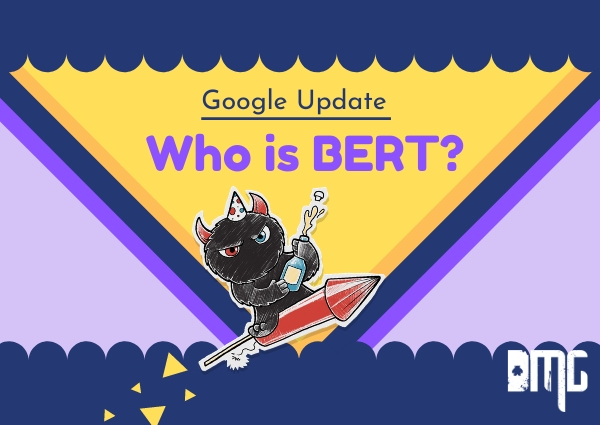Google Update: Who is BERT?
 https://www.omahamediagroup.com/images/uploads/monster_gallery/Omaha-Media-Group-Black.jpg
https://www.omahamediagroup.com/images/uploads/monster_gallery/Omaha-Media-Group-Black.jpg

What and who is BERT? What exactly is this latest Google Update that has the SEO community on their toes? What does Britney Muller from Moz say?
“Don’t over hype BERT.”
Who is BERT?
Well, we all know who Bert is, but we do not know this BERT person. BERT is short for Bidirectional Encoder Representations from Transformers and our Denver SEO experts cannot thank Google enough for shortening that to BERT. However, BERT has been in the process of being released for quite some time.
In November 2018, Google’s AI Blog released the first blog about BERT. As Google states, “We open sourced a new technique for NLP pre-training called Bidirectional Encoder Representations from Transformers, or BERT.”
BERT has been in the process for a year and even possibly before that. One of Google’s biggest challenges has been to make sure that the Natural Language Processing (NLP) needed to be fined tuned on small-data and understand pre-trained language with understanding of question dataset!
What does all of this mean? In simple terms, when Google first said that they were working on an update that would mimic natural language with search engines it was still a baby that needed to learn how to walk and talk.
This baby has now grown to an adult and is estimated to affect one in 10 of all search queries on Google’s search engine. BERT is here to help machines understand what the words in a sentence mean and find the best results based on these words.
The purpose behind BERT
The overall purpose of BERT is simply designed to help with understanding search queries meanings and providing the best results based on that search query. Just about every person has entered either questions or phrases into Google and the results are just slightly off of what the search query was.
This is what BERT is working on. BERT is working on understanding natural language processes in 11 different languages to help with all the nuances and context of a search.
According to Google, 15 percent of all search queries are new and each one is different than the one before it. As search queries are constantly changing and new ones showing up in SERP, it can be difficult to ALWAYS provide the best results for a search query.
There is speculation that BERT has been released at the perfect time in the SEO world. It is estimated that 50 percent of all search queries will be conducted with a voice search assistant. This includes, but does not limit, Google Homes, Alexas, Echos, Siri and other voice assistants.
What are these assistance searching for?
Conversational content for starters and BERT is learning natural language to help understand and refine search results based on this learning. Our Denver SEO experts want everyone to stop and think about this for a second:
How would you ask Alexa versus typing something in on Google? You would probably say, “Alexa, find me the best pizzeria.” but when typing you might search, “best local pizza.” This slight difference in search queries are a big enough change that it will start to affect websites, but how big of an affect?
Next steps?
BERT is keeping the SEOs on their toes for sure. As of now, there is little data and experts in the industry finding a drastic change in ranking. When the update was released, most tools and software did not alert anyone of a major change. This is the biggest update in five years, but so far there has not been a major drop or rise in ranking.
Our Denver SEO team noticed that long tail keywords had “in” the keyword phrase itself. This could be due to BERT trying to make searches more natural and human like. This could also be due to the speculation of the rise in voice search, but both BERT and voice search are seeking out humans like content and conversational content!
The long tail keywords with “in” the phrase are a start to SEO in 2020! Now is the perfect time for a company to update their SEO strategy or start one! For more information, please contact Denver Media Group, your leading Denver SEO company.
Posted In: SEO and Search Marketing




















